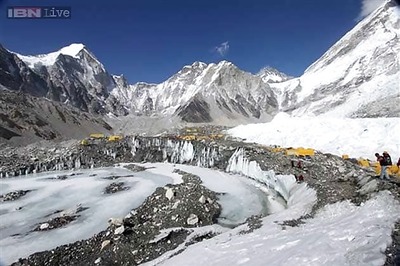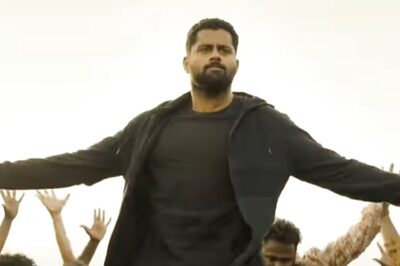
views
In May 2005, as Indian and Pakistani Track I negotiators were reaching a 'settlement deal' on the forbidden Siachen Glacier, the then Chief of the Army Staff Joginder Jaswant Singh made an unexpected public statement. A deal would only work, he said, when Pakistan agreed to authenticate the 110-km Actual Ground Position Line dividing the two armies. The deal was about the 'demilitarisation' of the glacier, a euphemism for India vacating this strategic battle-ground to appease Pakistan and some common alien masters. Obviously it fell through.
In his Book 'The Accidental Prime Minister' Sanjaya Baru accuses General JJ Singh of playing double game: "In closed-door briefings, the General would say that a deal with Pakistan was doable, but in public he would back (AK) Antony when the Defence Minister chose not to back the PM." JJ Singh, vehemently denies this, but considering the past manipulations of this General including the obnoxious doctrine of 'Line of Succession' a jury need to be put out!
While so, on this simple revelation, Delhi is simmering even as temperature in Siachen glacier is hovering around -15 degree Celsius! Heat is such that BJP's highly-visible prime ministerial candidate, Narendra Modi, has taken up this as a grave national security issue and has asked the non-visible Prime Minister to come clean, saying that this matter is going viral on social media. What is going around in the social media is a brief on the subsequent developments on Siachen under UPA II, when Baru was not there.
In September 2012, the Ottawa based Atlantic Council, alleged to have links with Pakistan's ISI, announced the signing of an agreement to demilitarize Siachen as part of Confidence Building Measure between India and Pakistan. This agreement was negotiated by a 22-member India-Pakistan Track II team, headed on the Indian side by former Air Chief Marshall SP Tyagi. The Pakistani side was led by General Jehangir Karamat, a former Pakistan Army Chief. Meetings were held at Bangkok, Dubai, USA and finally at Lahore. This was despite the clear stand adopted by the Army, Defence Ministry and Ministry of External Affairs against 'demilitarization' of the glacier that has huge strategic value for India.
There was something sinister in the whole thing because Prime Minister Manmohan Singh has been under pressure from the US to pull back from Siachen as a sop to the Pakistan Army who has been threatening to lease out Baltistan/Gilgit to China. It was also known that despite having no actual presence on Siachen, Pakistan continues to claim the territory.
As soon as details of the 'Agreement' were put up on the internet all hell broke loose. It went ballistic on the military (serving and veteran) email circuit in which I was also a part. Lt. General PC Katoch, a former commander of the Siachen Brigade fired the first salvo: "For decades, India has always distrusted the Atlantic Council, which is perceived to be in bed with the Pakistani military. In this arrangement Pakistan has grabbed the strategic opportunity to attain all its key goals. It is surmised that the PM is aiming for a Nobel Peace Prize to recover the legitimacy his Government has lost after a succession of scandals." This was followed up by an article by me and Kunal Verma (Author, 'The Long Road to Siachen: The Question Why) in Gfiles in August 2012. Otherwise there was no whimper.
The just retired General VK Singh's take on the issue was nuanced and candid: "Let us first be very clear as to who is asking for this so-called demilitarization. The Pakistanis are not on the Siachen Glacier, but are west of the Saltoro Range. Contrary to what they want their own people to believe, they have a zero presence in Siachen. I wonder if demilitarization will also result in Pakistan withdrawing from Baltistan, pulling back to the west towards the Karakoram Highway. It is ludicrous that in such circumstances we are talking of demilitarization and withdrawal. Our troops are well established and administratively well off so what is the rationale to pull them out of the area?"
A set of twelve questions were posed by me to the Track II team: (i) Who appointed the Team and what are their credentials and service record in the Siachen area? (ii) Who all in the Government briefed the Team? (iii) Did the Team visit Siachen before inking the agreement? (iv) Was the decision of the Team unanimous? (v) Decision to demilitarize Siachen has grave military consequences. Were the three Service Chiefs consulted on this? (vi) This issue has serious strategic, deployment, logistics, demographic, displacement, cost and time implications for the Army. Was the matter discussed with the Northern Army Commander? (vii) After 'demilitarization' what additional measures will be required to check terrorist infiltration in Kashmir Valley? (viii) Is it merely a Track II initiative? If so why were the members briefed by Government officials before the Lahore meet? Were they not told that this team is "as good as Track I"? Does it not make it official? (ix) NSA is stated to have briefed the leader of the Team and one/two members separately? If so why? To firm up a secret deal? (x) The whole process, particularly signing of the Agreement was kept under wraps. Why this secrecy? (xi) On whose orders did some select members of the Team justify the agreement? (xii) Why was such a major decision not discussed in Parliament and President kept informed?
None of the Track-II participants answered even a single question, perhaps secure in the knowledge that their actions will be protected by those on behest of whom they had been acting. But faced with intense heat from several quarters, including charges of treachery, the Indian co-chair of Track II, a former Air Chief Marshall confessed that they only acted on orders and there were bigger players including the PMO behind this.
However three of the key players of Track II participated in the email exchanges. It included retired Brigadier Gurmeet Kanwal who authored the original demilitarization plan in 2005 along with a Pakistani Army officer under the aegis of a US think-tank. This is what he said: "We have different views on the issue of the demilitarisation of the Siachen Conflict zone.... My views are consistent since the summer of 2005 when I did some research into the subject in a US think tank along with a Pakistani colleague and realised how both the nations were wrong in continuing to occupy their positions....."
This was followed-up by the co-chair ACM Tyagi who clarified: "Brig Gurmeet Kanwal has already sent an email...The press release by the Atlantic Council was approved by me and General J Karamat.... Before its release we in India informed the Service Chiefs and many Very Senior Offrs in the establishment dealing with Indo Pak issues... There was "No Conspiracy".... We were not appointed by any Government Agency nor do we have anything do with the Govt of India. While it is true that we did meet several Government functionaries to keep us up to date, we take full responsibility for what we say and do... We hold no official post, have no authority and we voice our individual opinions. We did not suggest that we should give up Siachen now. All that we agreed upon was that should the two sides ever agree to demilitarise then this could possibly be a way."
Col. (Retd) Ajay Shukla who was PMO's key facilitator in Track II was pontificating: "The crucial thing to understand about the Siachen Proposal is: it spells out the modalities for the demilitarization of Siachen, but does not say anything about when this demilitarization should be done. That vital question-i.e. whether to demilitarize Siachen at all-is a political issue that the two governments continue to discuss in the Track I Siachen dialogue. The modalities of demilitarization, naturally have relevance only after a full-fledged Siachen Accord between the two governments.... It is important to note that the much-vilified Track II dialogue is entirely in line with the Track I official dialogue with Pakistan. In that, India insists upon the authentication of ground positions as a pre-requisite for demilitarization. The Track II Siachen Proposal explicitly specifies that "The present ground positions would be jointly recorded and the records exchanged."
The no-nonsence General VK Singh could not take this crap and retorted: "Shuklaji, what are you defending? A jaunt given by the government to work out an informal agreement that can then be sold to the Public? Your defence is in itself an indictment of the stupidity of the group which attempted this."
Forced to the corner Col Shukla turned abusive. He called us all 'communal scums' and pointing to me wrote: "Amongst those with the most dubious credentials in this group is you. An IAS officer turned moralizer! What a combination, Sir-ji." This impotent outburst did not work and for the second time PMO beat a hasty retreat and Siachen lived for another day. But the questions still remain unanswered!
Finding the answers is the task cut out for the new Government. The Siachen issue has multiple ramifications and in light of Sanjaya Baru's revelations, it is perhaps vital that a detailed investigation is done. While it is possible that most of the Track II members were acting in good faith, the role of the three key members-Tyagi, Kanwal and Shukla-looks suspect. It is also imperative that General JJ Singh's role is also looked at, because it involves the Institutional Integrity of the Armed Forces that has been sliding down hill. Senior commanders are in the habit of compromising national interest and tell the political bosses what they want to hear. This is not acceptable.
Given the magnitude of what the Army has achieved over the last thirty years in securing not just the Glacier but also the Saltoro, we need to bury the issue once and for all. If for nothing else, we owe it to the blood, shed by our valiant soldiers to accomplish this. Let them at least be secure in the faith that while they guard the 'final' frontier, the gates to the country shall not be opened from within!
(Writer is a former Army and IAS Officer and author)

















Comments
0 comment